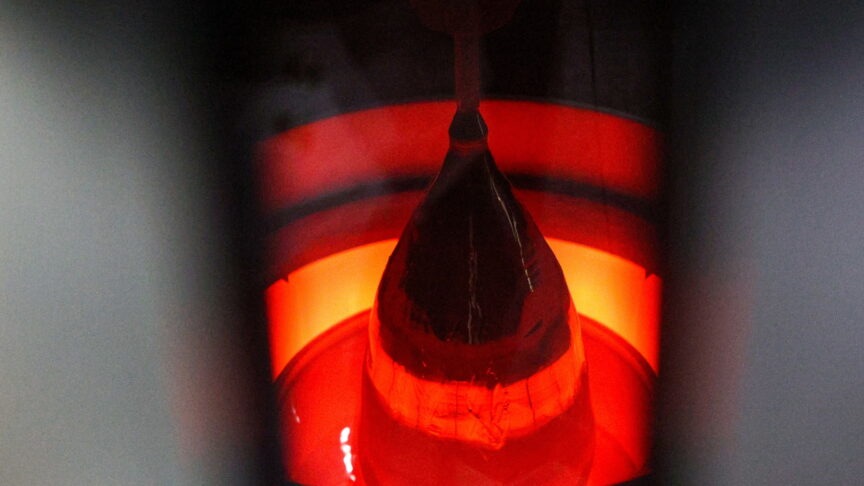Macron and the European Intervention Initiative: Erasmus for soldiers?
The cultivation of a shared strategic European defence culture must encompass the possibility – the likelihood, in fact – of autonomous European action
What has become of the European Intervention Initiative proposed by Emmanuel Macron in his Sorbonne speech in November?
According to one well-informed commentator, we could be about to find out. Paul Taylor reports that a Letter of Intent is under discussion between France and nine other potential participants (Germany, Italy, Spain, Netherlands, Belgium, Portugal, Denmark, Estonia, and the United Kingdom); and that the initiative could be launched as early as next month. Yet it seems that uncertainty and hesitation persist about who will sign up and just what they will be signing up for.
The usual objections
In part, the doubts seem to be the usual smokescreen of political and procedural objections that appears whenever European Union member states find themselves pressed to give substance to their declared commitment to European defence. Will this not this undermine NATO? Is this not just a French plot to advance their own national agenda? And, anyway, should not such an initiative be taken under the PESCO umbrella?
The ‘undermining NATO’ and ‘excessive French influence’ innuendos are as old as the European defence project itself, and the counter to both, as it has always been, is ‘no one wants to see such outcomes, so participants will ensure they do not happen’. The PESCO objection is new, but equally insubstantial. At no point has anyone ever argued that PESCO should be the only forum in which defence cooperation between subsets of member states can take place. Indeed PESCO, as described in the treaties, was itself meant to be confined to a subset of the more militarily capable and ambitious Europeans. For good or ill (actually, for ill), PESCO has of course gone forward as something very different – an ‘all of one company’ approach, with 25 member states participating. But that only strengthens the case for encouraging other flowers to bloom elsewhere. There is no more reason for the European Intervention Initiative (E2I) to be brought under PESCO than, for example, Germany’s Framework Nation initiative or Nordic defence cooperation, or all new equipment collaborations.
And there is, of course, one overriding objection to making the E2I a PESCO project. To do so would preclude participation by the UK and Denmark, two of the relatively small number of European countries that have demonstrated a willingness in recent years to commit their armed forces to actual operations. Serious negotiations over the post-Brexit defence and security relationship between the UK and the EU have yet to begin. But important voices across the continent have urged that Brexit should not frustrate British willingness to continue contributing to European security. If such a lose-lose outcome is to be avoided, then innovative ways will need to be found to keep the UK clutched in to the defence activity of European partners and allies. The E2I would be just such an innovation – which is no doubt why the British agreed at the Anglo-French summit in January to sign up to it.
Strategic culture and intervention
All that said, there was undeniably a lack of Cartesian clarity in Macron’s description of what he was actually proposing. At one point in his speech he declared that: “At the beginning of the next decade, Europe needs to establish a common intervention force, a common defence budget and a common doctrine for action.” Yet his description of the E2I seemed altogether less ambitious: his call was for an initiative “aimed at developing a shared strategic culture.” “I thus propose to our partners that we host in our national armed forces – and I am opening this initiative in the French forces – service members from all European countries desiring to participate, as far upstream as possible, in our operational anticipation, intelligence, planning and support.” So left of arc, an intervention force; right of arc, a sort of military Erasmus. Other Europeans may be forgiven a degree of confusion.
Yet the gap between a shared European strategic culture and an improved capacity for European intervention operations is more apparent than real. As the seminal European Security Strategy declared as long ago as 2003, “We need to develop a strategic culture that fosters early, rapid and, when necessary, robust intervention.” Of course, a lot of water has flowed under the bridge since then. Misadventures in Iraq and Afghanistan have taught Europeans hard lessons about the limits of what armed force can achieve. But that does not invalidate the underlying notion that from time to time their interests and/or values will demand that Europeans intervene with military force to try to make a bad situation better.
And this, of course, is just what the new European Global Strategy of 2016, endorsed by all member states, tells us. The tone is measured: a careful concertation of all the instruments and levers at the EU’s disposal is essential if it is to achieve its foreign and security aims. But the strategy rejects isolationism – “the Union cannot pull up a draw bridge to ward off external threats” – and it promises that “we will therefore act promptly to prevent violent conflict, [and] be able to respond responsibly yet decisively to crises”. The Common Security and Defence Policy, the strategy emphasises, “must become more rapid and effective”. And the strategy majors on the need for “strategic autonomy” – the ability of the EU to take action by itself, including military action, if the situation demands.
All this makes good sense – especially at a time when Washington takes no pains to hide how little it values the traditional transatlantic relationship. Yet it also sits uncomfortably with the passivity of the EU’s operational record in recent years, epitomised by the non-deployment of EU Battlegroups over the dozen years since they first became operational. Despite the willingness of individual European states to take ad hoc military action, nationally or in support of the United Nations or in a United States-led coalition, the idea that Europeans might contemplate, plan, and conduct military interventions collectively seems as far from reality as it has ever been.
So Macron is correct to identify an underlying problem of ‘culture’ – of habit, mindset, ‘the way we do things round here’. And getting the key practitioners to work together has to be part of the solution. Common action by the EU in defence and foreign policy depends on a common appreciation of Europe’s security environment, and the challenges and opportunities it presents. And it depends on working together to prepare a range of possible responses – including planning for possible military operations. Jointly undertaken, such activity should promote convergence of national attitudes and approaches – the development, in short, of a “shared strategic culture”. Some will be disappointed that the Brussels institutions with horizon-scanning responsibilities – the European External Action Service, EU IntCen, and EU Military Staff – have not themselves been more successful in generating such convergence among the member states. But they have not; so a French impulse is to be welcomed. And so too is the French recognition both that not all EU member states will wish to be involved, and that here is an opportunity to work with non-members of the CSDP, namely, post-Brexit Britain and perhaps Denmark.
In sum, the culture that needs to be developed is precisely that of preparing for autonomous European interventions. If that makes anyone uncomfortable, they might ask themselves what else a specifically European strategic culture could possibly be about, given the accepted primacy of NATO for territorial defence. And, if that is the agenda, then the cross-fertilisation of “operational anticipation, intelligence, planning and support” among the more intervention-minded European states, as proposed by Macron, seems a good place to start
And then?
Getting the rather modest current French proposal off the ground is clearly the immediate priority. But, if it works, it may develop a momentum of its own. Shared appreciation of crises that arise will naturally lead to shared consideration of the sorts of responses, including military, which could be called for – the imposition of a no-fly zone? A military-assisted evacuation of European nationals? Some form of contingency planning should naturally follow – leading in turn to consideration of the assets and capabilities available to the participants, and how roles and responsibilities would best be distributed.
There may be a special role for air forces here. The record of recent years – from the Balkans to Libya, to the battle against the Islamic State group, to action (albeit too little and too late) against Bashar al-Assad – has demonstrated that air interventions are what most Europeans are most likely to undertake. Indeed, there is a broad, though not total, correlation between the suggested first participants in the E2I and European contributors to recent bombing campaigns.
Until now, the focus of European force planning has largely been on ground forces – the Headline Goal force of 60,000, the subsequent Battlegroups initiative. So, though this is not on the current agenda, an attractive line of development for the E2I could be to create a European Air Group. A ‘virtual’ group to be sure; any sort of standing force would detract from NATO, and be unaffordable anyway. But there would be much to be gained from willing Europeans planning together how an effective air intervention force could best be constituted – without having to fall back, as in the Libya campaign, on NATO or US command-and-control, strategic enablers, and smart munitions. Collective exercising would flush out interoperability problems, and highlight capability deficiencies – which could then be fed into the EU’s CARD and PESCO processes. And one important element of Macron’s proposed ‘European intervention force’ would be beginning to take shape.
But for now …
Such ambition may be more than the market is currently ready for (though with this US president, and with today’s security environment, ‘currently’ may of course have a rather short half-life). But, for now, France’s proposal seems to be limited to a practical, step-by-step approach to reviving the idea that there is little point in maintaining armed forces if you are not prepared to use them; to reminding Europeans that they have agreed that this may mean using them together, in operations outside the NATO framework; and to getting ready for the most likely contingencies.
The European Council on Foreign Relations does not take collective positions. ECFR publications only represent the views of their individual authors.


